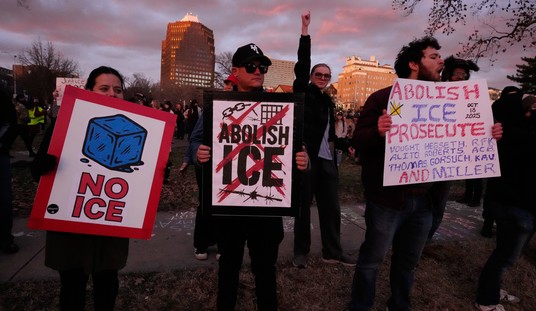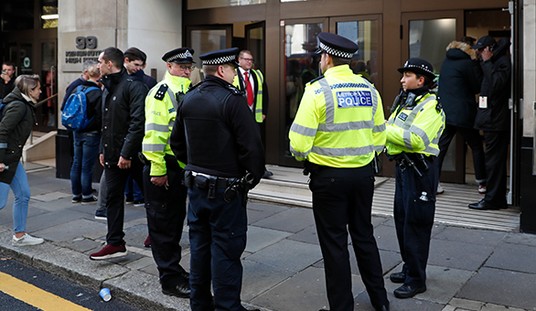Former Vice President Dick Cheney’s memoirs will hit bookstores next week, but in a small and predictable bit of irony, publisher Simon & Schuster has begun leaking some of the more provocative revelations already. The New York Times gets one of those leaks, in which Cheney reveals that he and he alone wanted to bomb the nuclear-development site in Syria in the summer of 2007. After having been overruled by Bush and outvoted by everyone else in the room, the Israelis bombed the site themselves:
Former Vice President Dick Cheney says in a new memoir that he urged President George W. Bush to bomb a suspected Syrian nuclear reactor site in June 2007. But, he wrote, Mr. Bush opted for a diplomatic approach after other advisers — still stinging over “the bad intelligence we had received about Iraq’s stockpiles of weapons of mass destruction” — expressed misgivings.
“I again made the case for U.S. military action against the reactor,” Mr. Cheney wrote about a meeting on the issue. “But I was a lone voice. After I finished, the president asked, ‘Does anyone here agree with the vice president?’ Not a single hand went up around the room.”
Mr. Bush chose to try diplomatic pressure to force the Syrians to abandon the secret program, but the Israelis bombed the site in September 2007. Mr. Cheney’s account of the discussion appears in his autobiography, “In My Time: A Personal and Political Memoir,” which is to be published by Simon & Schuster next week. A copy was obtained by The New York Times.
Mr. Cheney’s book — which is often pugnacious in tone and in which he expresses little regret about many of the most controversial decisions of the Bush administration — casts him as something of an outlier among top advisers who increasingly took what he saw as a misguided course on national security issues. While he praises Mr. Bush as “an outstanding leader,” Mr. Cheney, who made guarding the secrecy of internal deliberations a hallmark of his time in office, divulges a number of conflicts with others in the inner circle.
Politico reports on the intramural conflicts, which include friction with Condoleezza Rice over North Korea, and Colin Powell in general:
The “concessions delivered” to North Korea “in the naive hope that despots would respond in kind” were wrong, wrote Cheney, as was the advice given by Rice’s State Department on the issue, which the vice president wrote was “utterly misleading.”
Rice was also off base for clashing with White House advisors over the tone of the president’s speeches on Iraq, Cheney writes. …
After the 2004 election, Cheney writes, he sought to have Powell removed from the cabinet. “It was as though he thought the proper way to express his views was by criticizing administration policy to people outside the government,” Mr. Cheney wrote. His resignation, Cheney added, “was for the best.”
According to the Drudge Report, Cheney also blasts Powell for standing silently by as his deputy Richard Armitage leaked CIA officer Valerie Plame’s identity to the press – something that eventually would engulf the Vice President’s office and result in the conviction of his chief of staff, Scooter Libby.
Cheney also reserved harsh words for George Tenet, the director of the Central Intelligence Agency. Tenet resigned in 2004 “when the going got tough,” Cheney says, according to the New York Times, something that was “unfair to the president.”
Cheney even manages to tweak conservatives, surprisingly. He writes that he supported the TARP program, and even praises Barack Obama for his support of the bill as Senator. He does blast Obama for attempting to close the detention center at Guantanamo Bay, though, and for Obama’s attempts to “peddle falsehoods” about Gitmo. The book starts off with Cheney’s recollections of 9/11, which Cheney says that his past government experience prepared him to handle. Those reflections come when his former boss George Bush has a National Geographic special on the same topic — not exactly a coincidence as the 10th anniversary of the attacks approaches.
These days, everyone writes a book about their time in national leadership. I wondered if Cheney might have been the exception. He valued confidentiality and usually acted with discretion as Vice President. Given the amount of vitriol hurled his way in the eight years of the Bush administration, though, it’s not surprising that Cheney would want to set the record straight — or at the very least, make sure his version of history was made public. I’m looking forward to reading it.








Join the conversation as a VIP Member